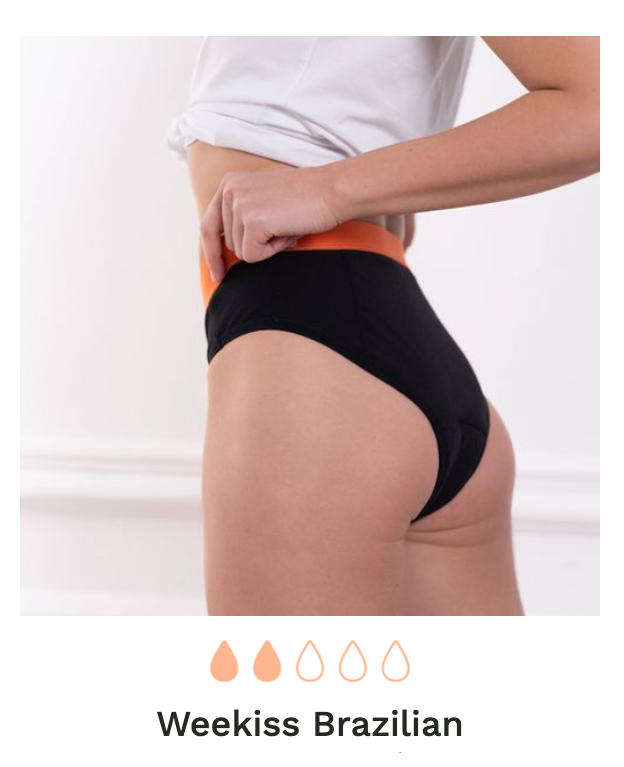Menstrual cramps often make life difficult for us women. Besides severe abdominal pain and flatulence, diarrhoea can also occur during the period. In the following, we will explain the causes of these digestive problems and what you can do about them.
The most important facts about flatulence and diarrhoea during your period at a glance
- Hormonal fluctuations can cause diarrhoea in women during their period.
- A hot water bottle and a light diet can help calm the bowels if necessary.
- If there is some blood in the stool during your period, it is usually due to harmless causes like menstrual blood.
- The changes in hormonal balance can also cause flatulence in women during their period, in addition to diarrhoea.
- If the menstrual symptoms are very severe, a visit to the gynaecologist is advisable.
What causes diarrhoea during the period?
It is not uncommon for women to get diarrhoea during their period. The digestive problems are mainly caused by the hormones progesterone and prostaglandins.
Progesterone and diarrhoea
After ovulation, the corpus luteum produces the hormone progesterone. The rising progesterone level ensures that the lining of the uterus is built up in preparation for a possible pregnancy. In the days before menstruation, the hormone also often leads to undesirable side effects such as bloating and constipation.
When the period starts, the progesterone level drops very quickly. This in turn can cause women to have diarrhoea during their period.
Prostaglandins and diarrhoea
Prostaglandins are responsible for the contraction of the uterus during the period. This is important to loosen the previously built-up mucous membrane so that it can be excreted from the body with the menstrual blood.
However, prostaglandins can also influence the intestines and have a digestive effect. This makes diarrhoea in women during menstruation even more common.
How can diarrhoea during the period be counteracted?
If you suffer from diarrhoea during your period, there are a few things you can do to prevent it.
1. Keep warm
For example, try putting a hot water bottle on your stomach. The warmth not only relieves cramps. It can also help calm your bowels.
2. Watch your diet
Try to avoid high-fat and high-sugar meals and alcohol. Instead, choose foods that are easy to digest. For example, rusks or grated apples can help relieve diarrhoea during your period.
3. Drink enough
Because diarrhoea inevitably involves a lot of fluid loss, it is especially important that you drink enough. Drink either water or an unsweetened herbal tea.
Where does the blood in the stool come from?
Occasionally, there may be a little blood in your diarrhoea during your period. Fortunately, this is usually harmless. The blood can indicate small tears in the bowel or haemorrhoids, for example. Apart from that, it can also happen that there is simply some blood from your menstruation mixed in with the stool.
If you have blood in your stool more often or if you have other symptoms, it is still advisable to have an examination as soon as possible to rule out serious illnesses as the cause.
What are the causes of flatulence during the period?
In addition to diarrhoea, many women also regularly experience flatulence during their period. This is usually caused by a mixture of hormonal fluctuations and the associated cravings.
To make matters worse, the increase in progesterone levels before your period leads to a reduction in bowel activity, which inevitably slows down your digestion.
Especially if you regularly eat high-fat and high-sugar foods in the days leading up to and during your period, and don't get enough exercise, your digestive system is likely to be overloaded and bloating is likely to occur.
How can flatulence during the period be prevented?
Just like diarrhoea, there are a few things women can do to relieve bloating during their period.
1. Keep moving
Especially in the days before the onset of your period and during menstruation, it is important to stay physically active. This stimulates digestion and thus helps to counteract flatulence.
2. Try a magnesium supplement
If you have bloating or abdominal cramps, you may be able to use magnesium to help relieve cramps. Talk to your gynaecologist and ask her which magnesium supplement she recommends. 3.
3. Choose the right foods
Avoid foods that cause gas and don't drink alcohol during your period. Also, reduce sugar and fat in your daily diet if you often have bloating during your period.
Do I need to see a doctor if I have bloating and diarrhoea during my period?
Bloating and diarrhoea during your period are very unpleasant. However, they do not necessarily require a visit to the doctor.
Nevertheless, you should keep an eye on your menstrual symptoms. If they are very severe, or if they continue after your period, a visit to your gynaecologist is definitely advisable.
The gynaecologist can examine you to rule out any serious causes of your digestive problems. If necessary, she can also give you more tips on how to counteract the bloating and diarrhoea during your period.







